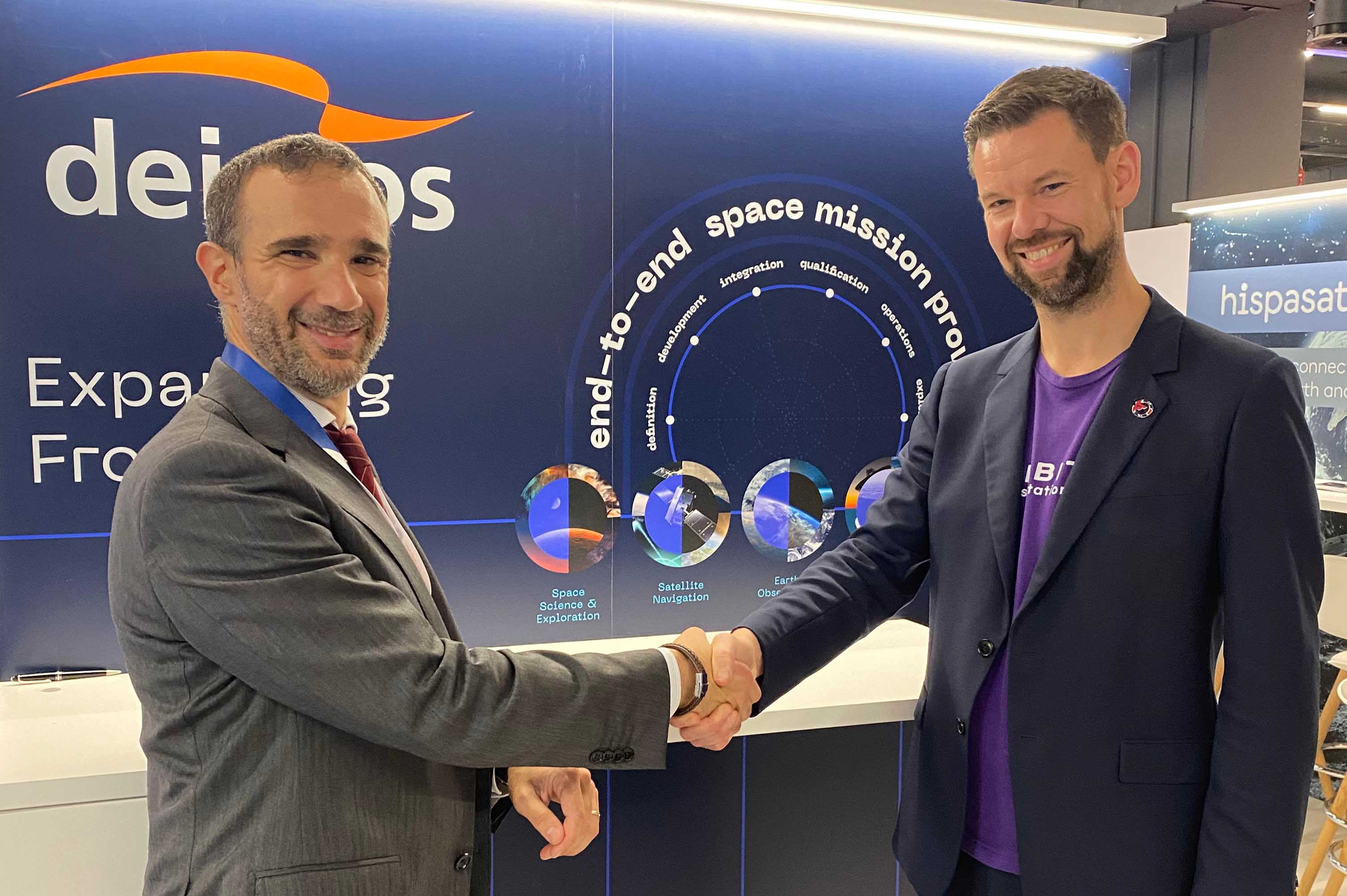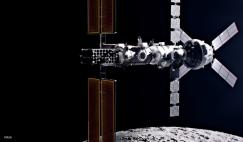A global space business focused on driving a sustainable approach to in-orbit operations by enabling spacecraft to be refuelled has announced multiple new strategic collaborations with key European space companies.
Orbit Fab, which raised $28.5m during its Series A funding round and boasts a growing team in both the US and UK, seeks to revolutionise the way satellites are currently operated by driving innovation in space refuelling technology.
Founded in 2018, the company offers satellite operators the ability to extend the lifespan of their spacecraft, removing the current ‘single use’ paradigm and vastly reducing the need to launch new satellites to replace those that have run out of fuel.
During October's International Astronautical Congress (IAC) in Milan, Orbit Fab signed four Memorandums of Understanding (MOUs) signed on the UK Pavilion between the company and new partners D-Orbit, DEIMOS, Infinite Orbits and Magdrive.
The newly forged partnerships will allow Orbit Fab to leverage cutting-edge expertise from industry leaders in spacecraft technology, propulsion and orbital management, accelerating the development and deployment of in-orbit refuelling technologies essential for sustaining In-Orbit Servicing and Manufacturing (IOSM) and satellite life extension capabilities.
In addition, the new business relationships will strengthen Orbit Fab’s European network, playing a crucial role in advancing the company’s vision to create a bustling in-space economy, supporting permanent high-skilled jobs through the first sustainable in-space propellant supply chain.
Daniel Faber, Orbit Fab CEO and co-founder, stated “These agreements are an important step in deepening our partnerships with key firms across Europe. D-Orbit, Deimos, Magdrive and Infinite Orbits share our passion and drive to build a bustling orbital economy with new in-orbit services. As European interest in refuelling has grown our team in the UK has expanded and formed strong links with each of these companies. I’m looking forward to building a thriving ecosystem for orbital servicing in Europe together in the coming years”.
Orbit Fab's growing network of partners underscores the company's leadership in driving the in-space economy, particularly by leveraging the UK's expertise in space technologies and Europe's strong aerospace heritage. The company’s expanding European presence also aligns with the increasing demand for space sustainability and efficiency solutions.
Dr Paul Bate, Chief Executive of the UK Space Agency, commented: “Space is a global industry and it is a significant challenge to preserve Earth’s orbits, as thousands of new satellites are launched each year. That’s why we are supporting businesses like Orbit Fab to develop new innovations that can help extend the lifespan of satellites, which is a key route to a more sustainable space environment. This is not a challenge that will be overcome by any one nation or company alone, so it is great to see these new strategic collaborations between Orbit Fab and companies across Europe.”
In addition to the new partnerships, Orbit Fab continues to engage with European regulatory bodies and space policy stakeholders to ensure that in-space refuelling becomes a critical component of future space exploration and satellite management. The company’s European expansion reinforces its dedication to supporting sustainable space operations through innovation and collaboration.
With the support of its European partners, Orbit Fab is paving the way for a future where orbital refuelling is the standard, ultimately reducing the number of non-functional satellites in orbit. By doing so, the firm will contribute to the protection of space infrastructure, including satellites that provide crucial daily services across multiple sectors - energy, logistics, maritime, mining, agriculture, conservation and more - that underpin our society, environment and economy.
Orbit Fab expands European network to accelerate in-orbit refuelling plans











